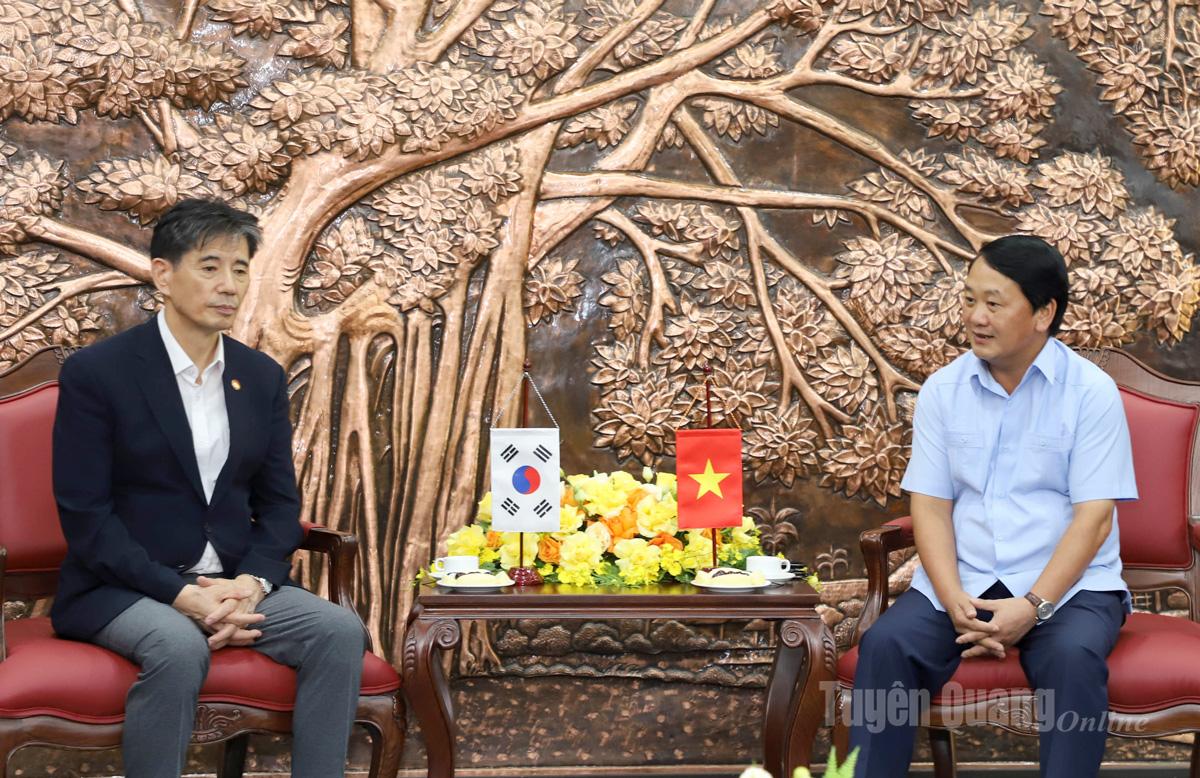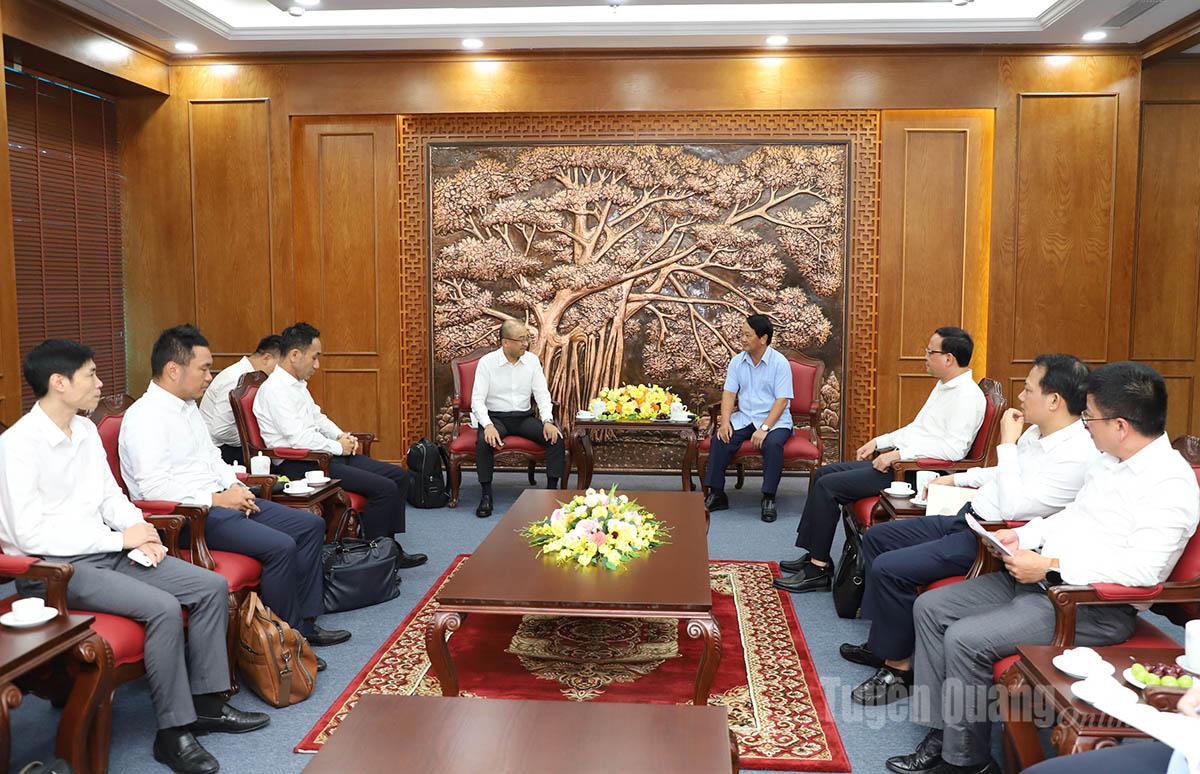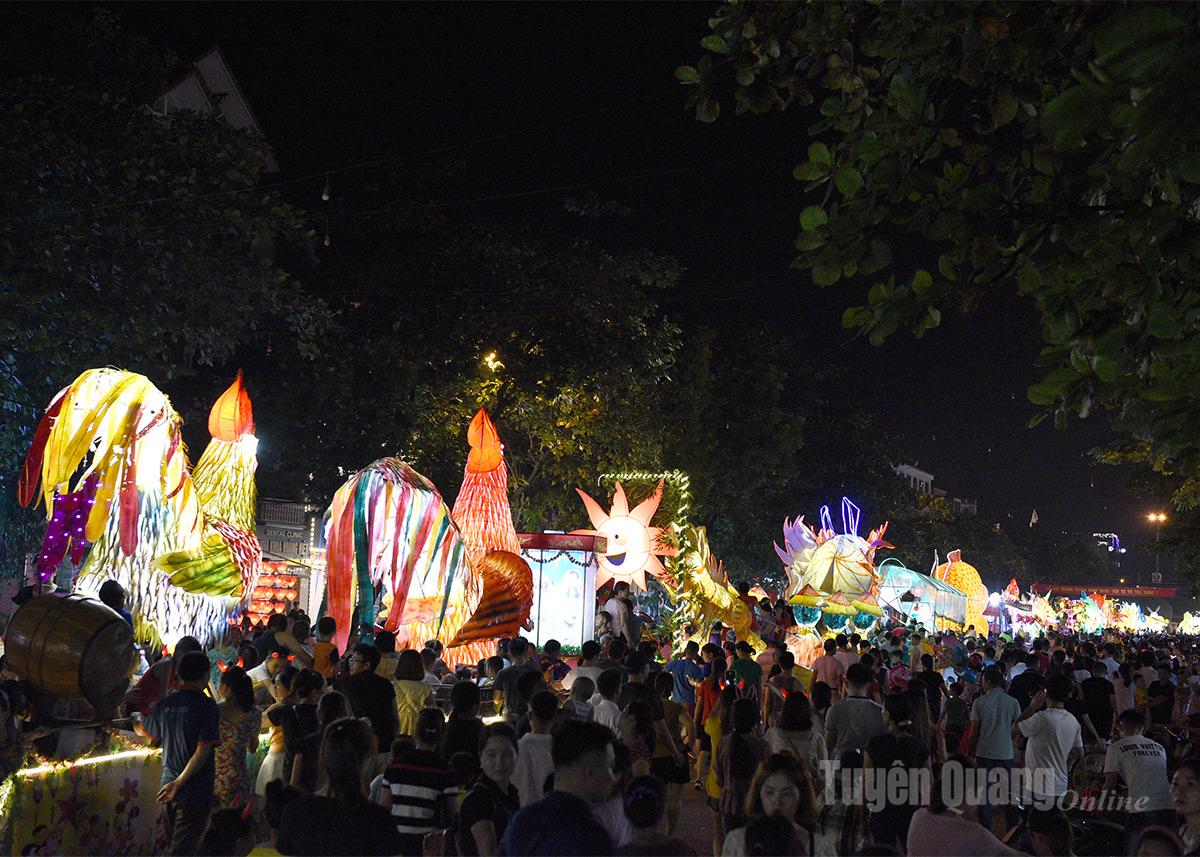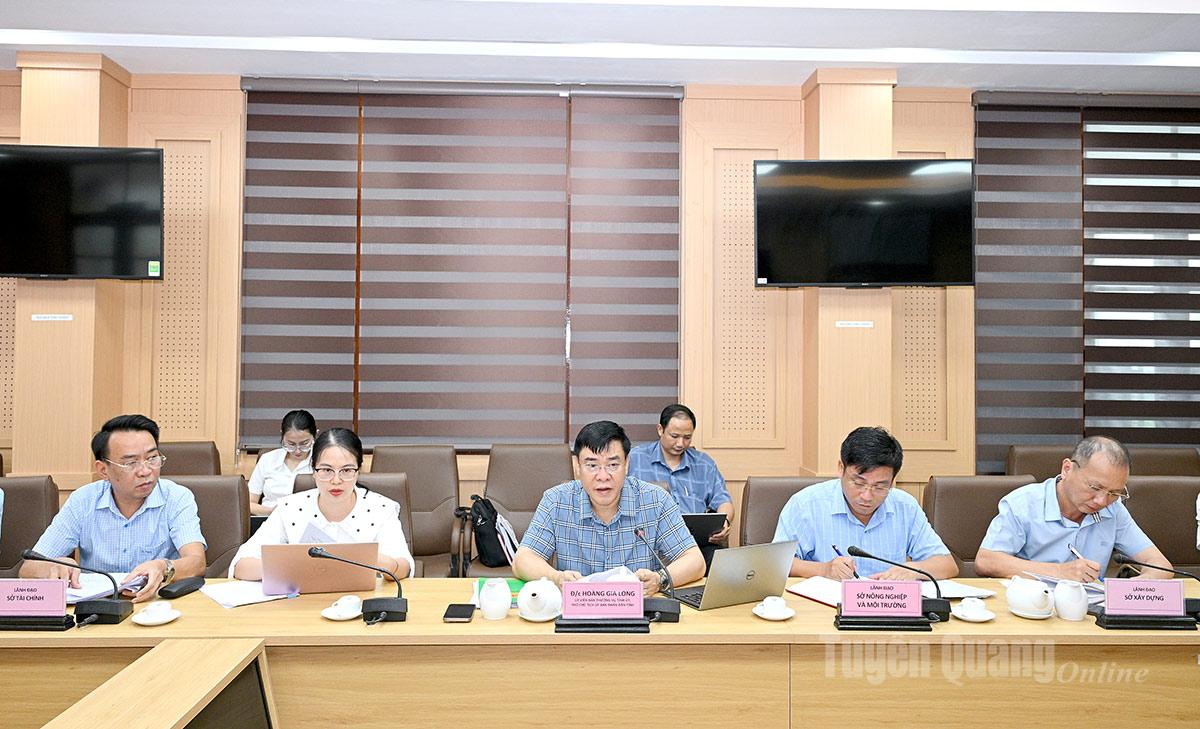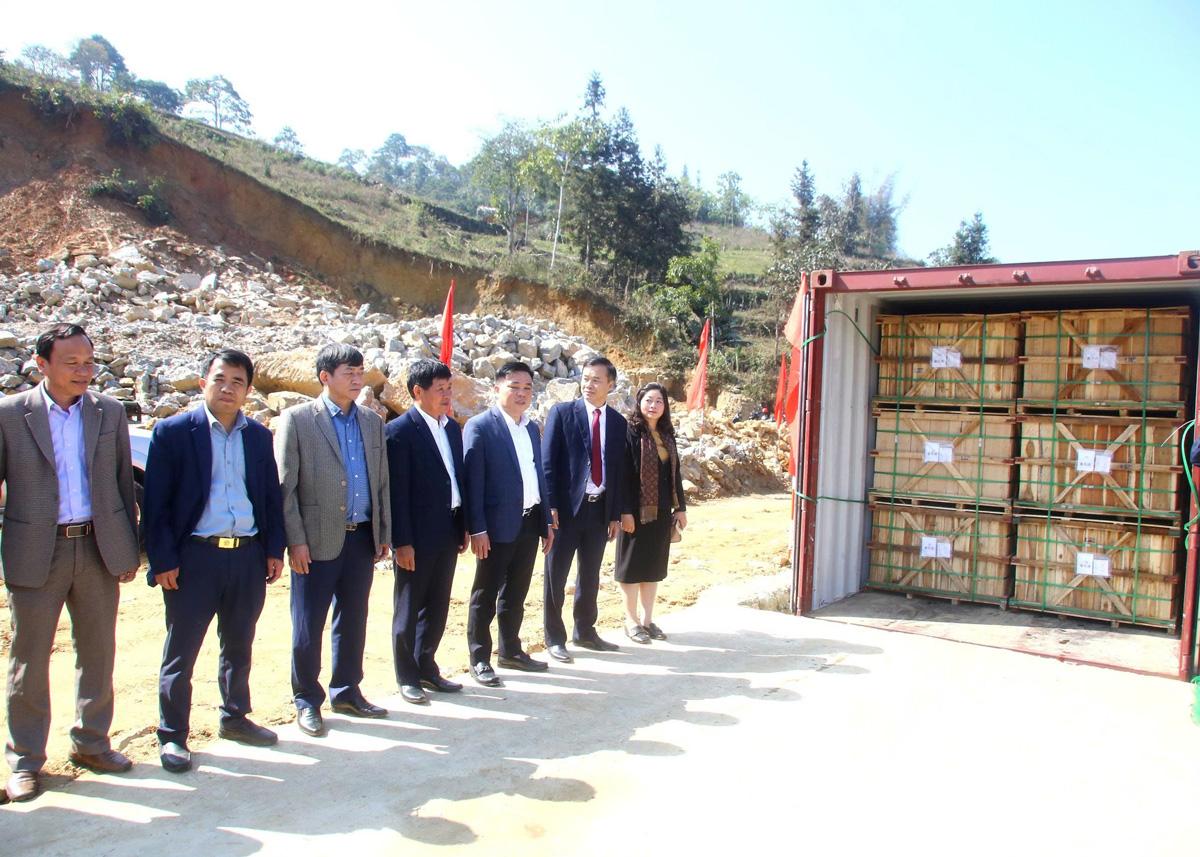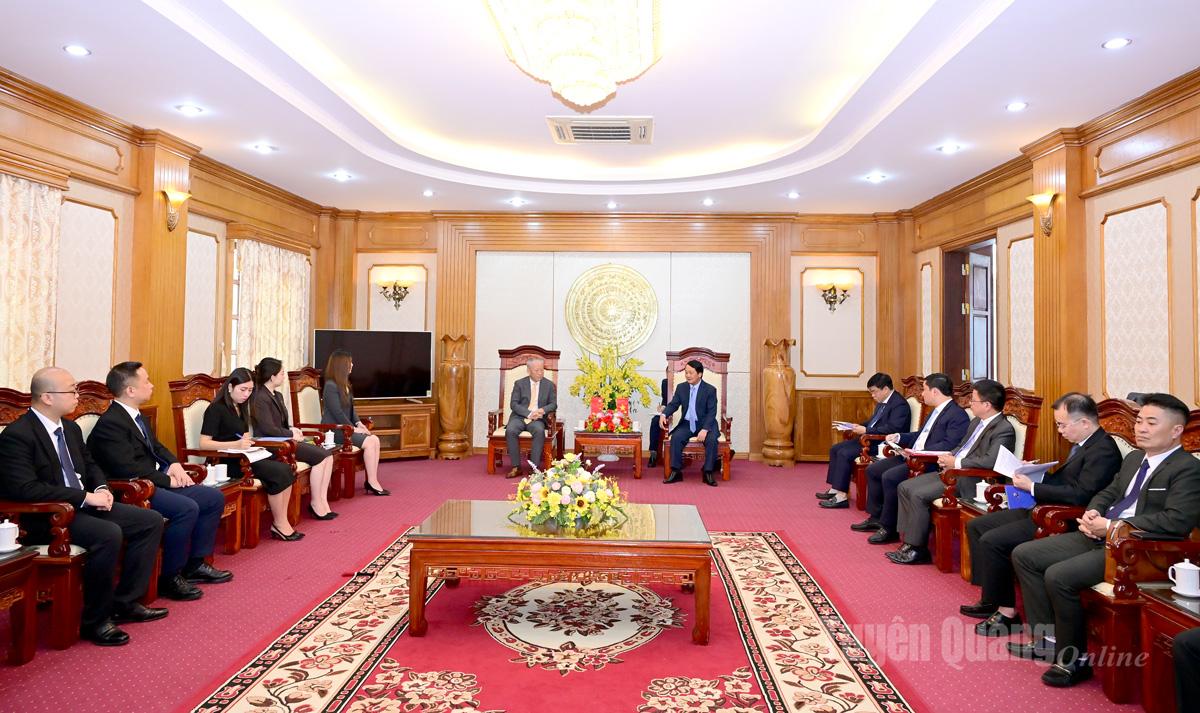
Mr. Nong Van Thuy (Na Va village, Thuong Lam commune) tends to his family’s cantaloupe greenhouse
One of the most far-famed examples is the greenhouse-grown cantaloupe farm owned by Mr. Nong Van Thuy in Na Va village, Thuong Lam commune. After researching melon farming techniques from other provinces, Thuy invested over VND 800 million (approx. USD 31,400) in early 2023 to build a 1,100-square-meter greenhouse, equipped with drip irrigation, growing medium, and imported seeds. Since then, he has cultivated six melon harvests, including four crops of a high-quality Japanese variety called Ichiba, known for its crisp texture, sweetness, and aroma - qualities highly favored by the domestic market.

Tam Huong Agricultural Cooperative works with farmers across the production and distribution chain
Tam Huong Agricultural and Service Cooperative stands out as a pioneering model in the province, aligning production with guaranteed market consumption. According to director Nguyen Dinh Tam, the cooperative has developed a fully closed-loop food production chain - from farming and breeding to processing and distribution - following the “farm-to-table” model. The cooperative partners with members in Thanh Tuong, Son Phu, and Hong Thai communes (Na Hang district) to grow organic vegetables and fruits, and to raise indigenous black porkers and black chickens using biosafety standards.
To promote organic agriculture, Tuyen Quang province has issued a series of supportive policies under the Resolution of the 17th Provincial Party Congress. The Provincial People’s Council approved Resolution No. 06/2020/NQ-HDND on December 15, 2020, to incentivize organic farming. The Provincial People's Committee also launched a restructuring plan for agriculture, focusing on high-value, quality-linked production chains as part of the 2021–2025 development roadmap with a 2030 vision. Currently, the province supports around 120 value-chain production partnerships, with 40 projects receiving over VND 130 billion (approx. USD 5.1 million) in funding from national programs.

Delegates from the Vietnam Gardening Association and provincial agriculture officials visit a grapefruit export farm in Xuan Van commune (Yen Son).
According to Mr. Ha Le Binh, Chairman of the Tuyen Quang Organic Agriculture Association, what sets organic farming apart is its strict process, absolutely no pesticides, synthetic fertilizers, growth stimulants, or herbicides are used. The province is now developing commodity agriculture, forming concentrated production zones for crops like oranges, grapefruits, and tea. Those of which are Ham Yen oranges have twice been ranked among the Top 10 most renowned fruits in Viet Nam, while Soi Ha pomelos (Yen Son district) were recently named among Viet Nam’s Top 10 best-known brands by the Vietnam Consumer Association. Soi Ha pomelos also became Yen Son’s fourth specialty ordered for export to the UK in 2024, one of the most demanding markets in Europe. Organic produce typically sells for 2–3 times more than conventionally grown products, with strong market demand and growing consumer trust.
To build closed-loop systems, the province is promoting the principle of using waste from one process as input for another. Farmers are now receiving training in organic composting and biological preparations, marking a shift away from chemical fertilizers and pesticides. This strategic transformation is paving the way for cleaner, greener agriculture, solving issues around product standards, environmental impact, and sustainable rural development.
Tuyen Quang Portal

